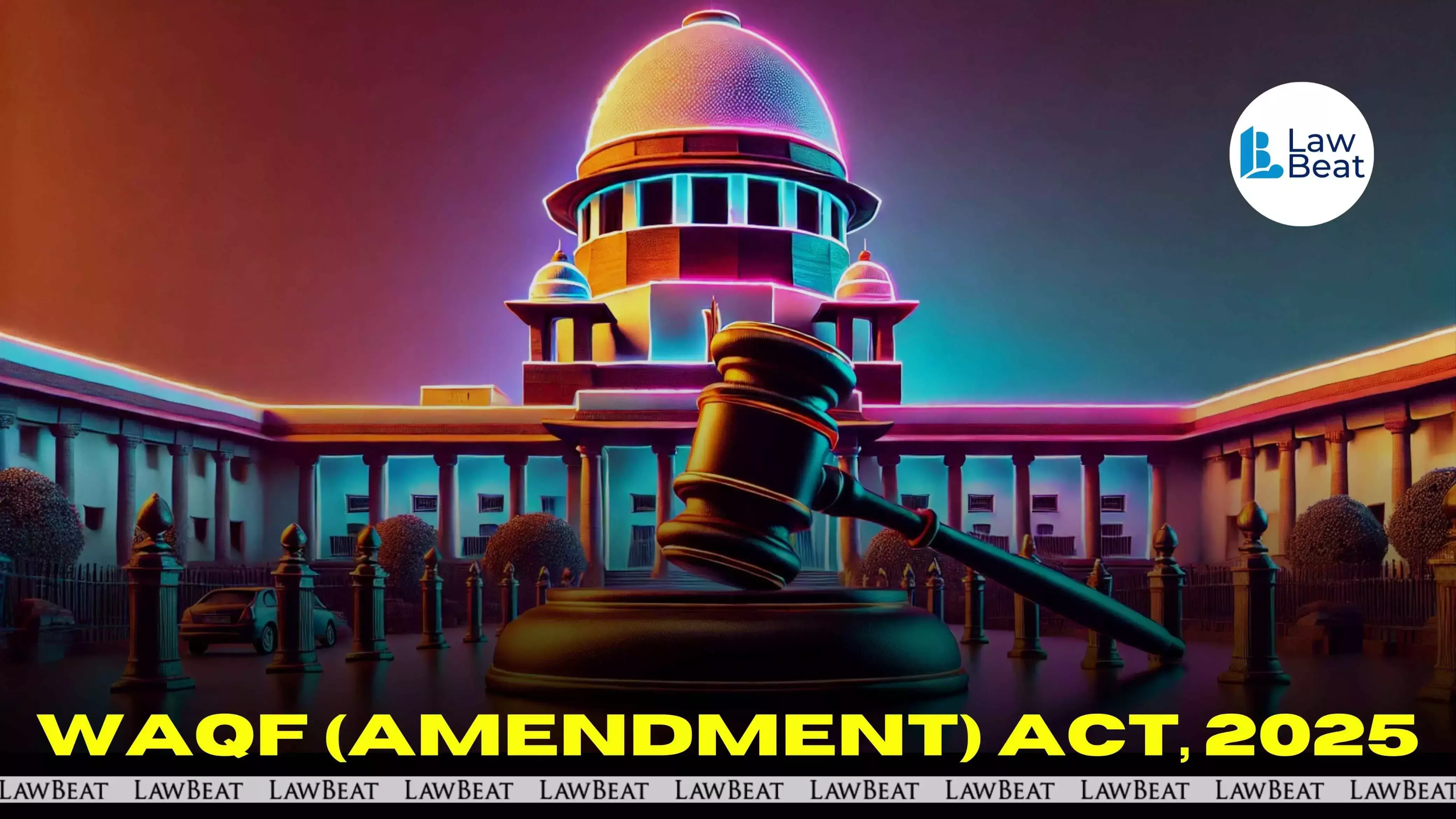Will there be a stay on Waqf (Amendment) Act, 2025? Supreme Court to pronounce order on Monday

Supreme Court declined to entertain a plea alleging technical glitches in the Centre’s UMEED Portal for uploading Waqf property details
The Supreme Court on Monday September 15, 2025 will be pronouncing its verdict on interim stay sought in a batch of petitions challenging the constitutional validity of the Waqf (Amendment) Act, 2025.
In May this year, the Supreme Court had reserved its order on interim relief in a batch of petitions challenging the constitutional validity of the Waqf (Amendment) Act, 2025, which, among other provisions, abolishes the concept of "waqf by user" and introduces sweeping changes to the registration and classification of waqf properties across India.
The Bench of CJI BR Gavai and Justice AG Masih had heard arguments from Senior Advocates Kapil Sibal, Rajeev Dhavan, and Abhishek Manu Singhvi on behalf of the petitioners. Solicitor General Tushar Mehta appeared for the Union of India.
SG Mehta had told court that three days of hearings had revealed no ex-facie evidence of unconstitutionality. He cautioned that mere legal propositions or hypothetical arguments do not justify halting the operation of a law duly enacted by Parliament. With this, the Centre concluded its submissions before the Court.
The All India Muslim Personal Law Board, in a rejoinder had asserted that the recent legislative changes in the Waqf (Amendment) Act, 2025, infringe upon fundamental rights and were passed through a flawed parliamentary process. The Board argued that the Respondents’ defense, that the amendments do not affect essential religious practices, is legally untenable. It stated that compelling the Petitioners to undergo the “Essential Religious Practices” (ERP) test is not only constitutionally misplaced but also ignores the evolution of Indian constitutional jurisprudence.
Central Government had in April submitted a detailed preliminary affidavit before the Supreme Court, defending the constitutional validity of the Waqf (Amendment) Act, 2025, and opposing interim reliefs sought by petitioners challenging the law.
The Centre had argued that the Waqf Amendment Act, 2025, was passed after extensive consultations, including the formation of a 31-member Joint Parliamentary Committee (JPC) comprising representatives from multiple political parties. The affidavit emphasizes that many of the petitioners had themselves participated in the JPC deliberations.
It is to be noted that on April 17, the Supreme Court had directed the Centre not to act upon the controversial provisions of the Act until further hearing, allowing State Governments and Waqf Boards to submit their responses. The Bench had recorded that Solicitor General (SG) Tushar Mehta, appearing for the Union of India, assured the Court that the Centre would file its preliminary response within 7 days.
The Kerala State Waqf Board has also strongly opposed the Waqf (Amendment) Act, 2025, describing the newly enacted law as “unconstitutional,” “discriminatory,” and “subversive of secularism.” The Board warned that the amendments pose a serious threat to the autonomy of religious institutions, the federal structure of the Constitution, and fundamental rights guaranteed under Articles 14, 15, 25, 26, and 30.
Aam Aadmi Party (AAP) MLA and Chairman of the Delhi Waqf Board Amanatullah Khan on Saturday, 5 April, moved the Supreme Court of India challenging the constitutional validity of the Waqf (Amendment) Bill, 2025. Khan moved the Apex Court through Advocate Adeel Ahmed. The petition seeks directions to declare the Waqf (Amendment) Bill, 2024, unconstitutional for violating Articles 14, 15, 21, 25, 26, and 300-A of the Indian Constitution.
All India Majlis-e-Ittehadul Muslimeen (AIMIM) Member of Parliament Asaduddin Owaisi also approached the Supreme Court challenging the bill. In his petition, Owaisi termed the Bill 'unconstitutional.' He argued that the bill brazenly violates the fundamental rights of Muslims and the Muslim community.
Congress MP Mohammad Jawed, a member of the Joint Parliamentary Committee that reviewed the bill, also moved the top court challenging it. He contended that the bill violates Articles 14, 25, 26, 29, and 300A of the Constitution. He also raised concerns regarding the proposed inclusion of non-Muslim members in Waqf Boards and the Waqf Council.
Notably, the bill, introduced by Union Minority Affairs Minister Kiren Rijiju on August 28, 2024, in the Lok Sabha, aims to amend the Waqf Act, 1995, to address management issues surrounding waqf properties.
It further proposed that waqf can be created by individuals practising Islam for at least five years, replacing earlier provisions that included non-Muslims. In the Waqf laws of 1913, 1923, 1954, and 1995, waqf was exclusively defined as a permanent dedication of property by individuals professing Islam. However, a 2013 amendment to the 1995 Act broadened the definition, allowing property to be dedicated as waqf by persons of any faith, including non-Muslims.
Case Title: In Re: The Waqf (Amendment) Act, 2025
